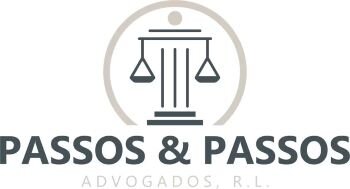Best Toxic Mold Lawyers in Portugal
Share your needs with us, get contacted by law firms.
Free. Takes 2 min.
Or refine your search by selecting a city:
List of the best lawyers in Portugal
About Toxic Mold Law in Portugal:
Toxic mold, also known as black mold or Stachybotrys chartarum, can pose serious health risks when present in indoor environments. In Portugal, laws exist to protect individuals from the harmful effects of toxic mold exposure. These laws address issues such as landlord-tenant disputes, property damage claims, and ensuring safe living conditions for all residents.
Why You May Need a Lawyer:
If you suspect that you have been exposed to toxic mold in your home or workplace, it is essential to seek legal guidance. A lawyer specializing in toxic mold cases can help you understand your rights, navigate legal processes, and seek compensation for any damages or injuries incurred as a result of mold exposure.
Local Laws Overview:
In Portugal, landlords are required to maintain their properties in a habitable condition, free from hazards such as toxic mold. Tenants have the right to request mold remediation and repairs from their landlords. If a landlord fails to address mold issues, tenants may be able to seek legal recourse through the courts.
Frequently Asked Questions:
1. What are the health risks associated with toxic mold exposure?
Exposure to toxic mold can cause respiratory issues, allergic reactions, skin rashes, and other health problems.
2. How can I tell if there is toxic mold in my home?
Signs of toxic mold include a musty odor, visible mold growth, and symptoms of mold exposure such as coughing, sneezing, and headaches.
3. Can I sue my landlord for toxic mold exposure?
If your landlord fails to address mold issues in a timely manner, you may have grounds to take legal action against them.
4. What should I do if I discover toxic mold in my rental property?
Contact your landlord immediately to request mold remediation. If they fail to act, consider seeking legal advice.
5. How long do I have to file a lawsuit for toxic mold exposure?
The statute of limitations for toxic mold lawsuits in Portugal varies, so it is best to consult with a lawyer as soon as possible.
6. Can I be evicted for reporting toxic mold in my rental property?
No, landlords are prohibited from retaliating against tenants who report mold issues.
7. Is toxic mold covered by renters' insurance?
It depends on your policy. Check with your insurance provider to see if mold remediation is covered.
8. Can I conduct mold testing in my rental property without my landlord's permission?
It is best to obtain your landlord's permission before conducting mold testing to avoid potential legal issues.
9. How can I document mold issues in my rental property for legal purposes?
Take photos, keep a written record of communications with your landlord, and seek professional mold testing to provide evidence of mold contamination.
10. Can I receive compensation for medical expenses related to toxic mold exposure?
If you can prove that your health issues are directly linked to mold exposure, you may be able to seek compensation for medical expenses through legal action.
Additional Resources:
For more information on toxic mold and legal assistance in Portugal, consider reaching out to the Portuguese Consumer Protection Association (DECO) or consulting with a local environmental health agency.
Next Steps:
If you suspect toxic mold exposure in your home or workplace and need legal assistance, contact a lawyer specializing in toxic mold cases as soon as possible. They can advise you on your rights, help you pursue compensation, and guide you through the legal process to protect your health and well-being.
Lawzana helps you find the best lawyers and law firms in Portugal through a curated and pre-screened list of qualified legal professionals. Our platform offers rankings and detailed profiles of attorneys and law firms, allowing you to compare based on practice areas, including Toxic Mold, experience, and client feedback.
Each profile includes a description of the firm's areas of practice, client reviews, team members and partners, year of establishment, spoken languages, office locations, contact information, social media presence, and any published articles or resources. Most firms on our platform speak English and are experienced in both local and international legal matters.
Get a quote from top-rated law firms in Portugal — quickly, securely, and without unnecessary hassle.
Disclaimer:
The information provided on this page is for general informational purposes only and does not constitute legal advice. While we strive to ensure the accuracy and relevance of the content, legal information may change over time, and interpretations of the law can vary. You should always consult with a qualified legal professional for advice specific to your situation.
We disclaim all liability for actions taken or not taken based on the content of this page. If you believe any information is incorrect or outdated, please contact us, and we will review and update it where appropriate.
Browse toxic mold law firms by city in Portugal
Refine your search by selecting a city.













